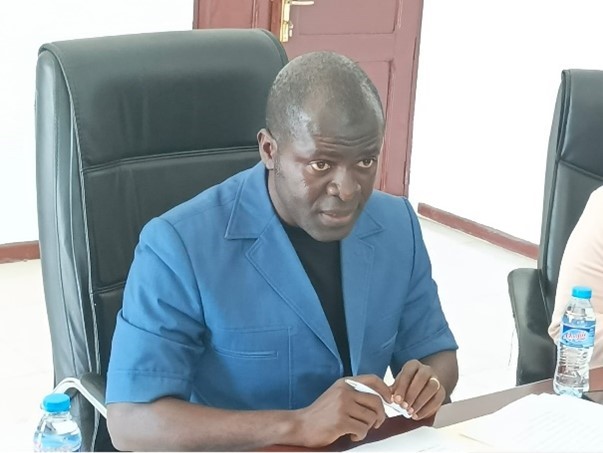The Environmental Protection Agency (EPA) of Liberia has imposed a substantial fine on Hongtu Mining Company, a Chinese mining operation, for egregious violations of environmental regulations in Grand Bassa County. The fine, amounting to US$10,000, stems from the company’s unauthorized operations, specifically conducting mining activities without obtaining the legally required environmental permit from the EPA. This breach was brought to light by a preliminary environmental investigation initiated after reports of environmentally damaging practices surfaced from local communities, civil society organizations, and the Liberia Excellent News Network (LENN). These reports detailed concerns regarding uncontrolled mining operations, water pollution affecting local water sources, and potential public health risks. The EPA’s investigation confirmed the absence of necessary operational permits, revealing a blatant disregard for environmental regulations.
The investigation, conducted at Hongtu’s mining site in Mat House Town, Grand Bassa County, uncovered a series of environmental infractions compounding the issue of operating without a permit. Evidence of river diversion, specifically the Shoni River, was discovered, indicating a significant alteration of the natural watercourse, potentially disrupting local ecosystems and water access for communities. Furthermore, the investigation revealed significant environmental degradation characterized by un-rehabilitated open pits, scarring the landscape and posing further environmental hazards. These open pits, remnants of mining activities, can contribute to soil erosion, water contamination, and habitat destruction, jeopardizing the ecological balance of the area.
Dr. Emmanuel K. Urey Yarkpawolo, Executive Director of the EPA, addressed a press conference detailing the findings of the investigation and announcing the sanctions against Hongtu Mining Company. He highlighted the concerns raised by local communities, which extended beyond environmental damage to encompass the disruption of livelihoods and unfulfilled corporate social responsibility promises. The communities expressed anxieties regarding the contamination of their water sources, jeopardizing their access to clean and safe water, a fundamental necessity. Moreover, the mining operations had negatively impacted their traditional livelihoods, potentially disrupting agricultural practices and access to natural resources. Despite ongoing construction efforts by the company, including the installation of hand pumps and the construction of a school, the negative impacts of the mining operations overshadowed these initiatives.
The EPA’s Executive Director emphasized that while Hongtu was engaged in construction projects seemingly aimed at community development, these initiatives did not excuse or mitigate the severe environmental damage caused by their unauthorized mining activities. He pointed out that the mining operations, conducted under a prospecting license, were not authorized for the scale and impact observed at the site. The prospecting license permitted exploration and assessment of mineral resources, but did not grant the right to conduct full-scale mining operations, especially without the required environmental permits. The construction of hand pumps and a school, while potentially beneficial to the community, did not address the fundamental issue of environmental degradation and the company’s disregard for regulatory processes.
In addition to the US$10,000 fine, Hongtu Mining Company has been issued an Environmental Restoration Order, mandating the allocation of US$30,000 to initiate and implement restoration efforts. This order underscores the EPA’s commitment to holding companies accountable for their environmental transgressions and ensuring that they take concrete steps to remediate the damage caused by their operations. The restoration plan, a crucial component of the order, requires Hongtu to engage a third-party accredited environmental firm. This independent firm will be responsible for developing and submitting a comprehensive environmental restoration plan to the EPA for approval. The plan must address the specific environmental damage caused by the mining operations and outline a strategy to restore the site to a condition as close as possible to its pre-mining state.
The EPA emphasizes that the restoration plan must comprehensively address the various environmental issues identified during the investigation. This includes the remediation of the un-rehabilitated open pits, the restoration of the diverted Shoni River to its natural course, and the implementation of measures to prevent further environmental damage. The selection of a third-party accredited environmental firm is intended to ensure the objectivity and expertise of the restoration process, guaranteeing that the plan adheres to best practices and utilizes scientifically sound methods. The EPA’s firm stance on environmental regulation sends a clear message that companies operating within Liberia must prioritize environmental sustainability and adhere to the country’s environmental laws. This action underscores the EPA’s dedication to safeguarding Liberia’s natural resources and protecting the health and well-being of its communities. The agency reaffirms its commitment to supporting businesses in maintaining sustainable operations, but emphasizes that economic development must not come at the expense of environmental protection.














